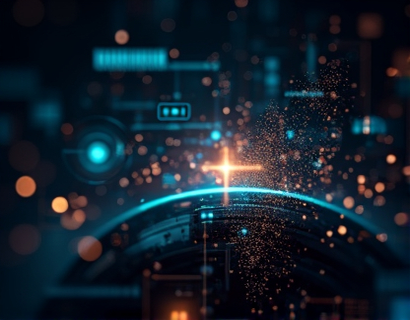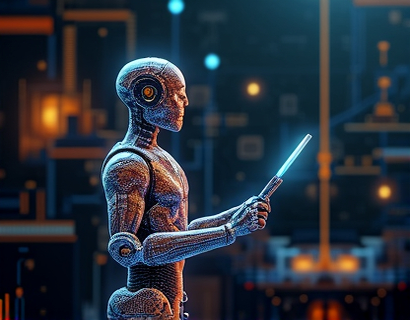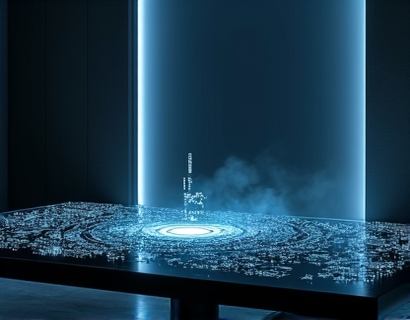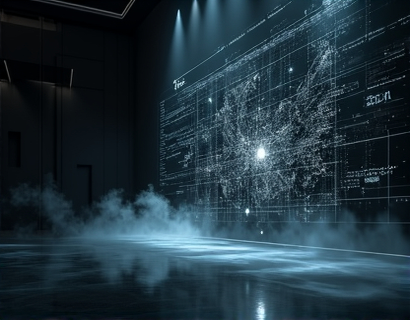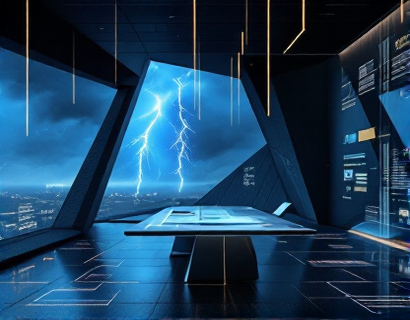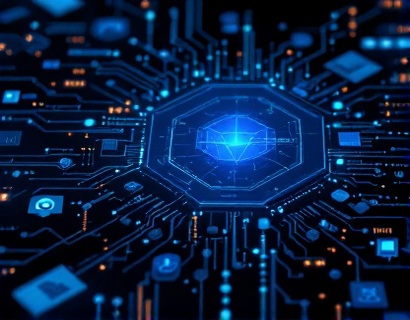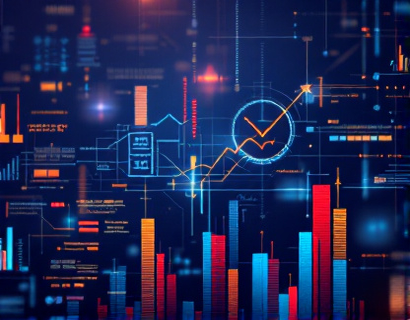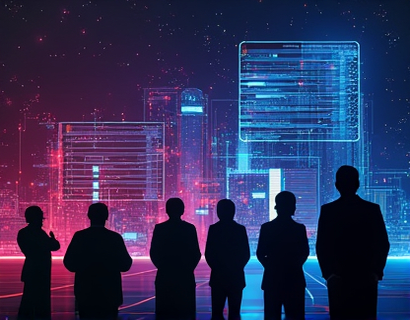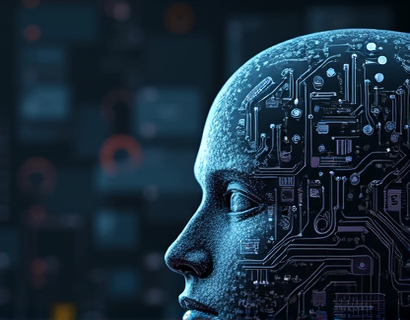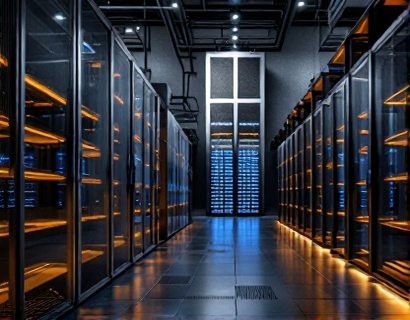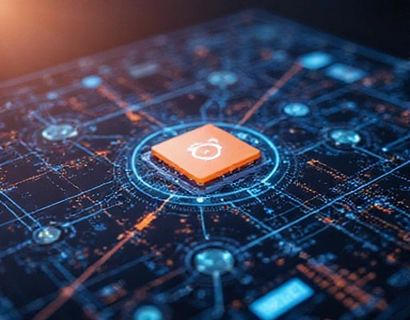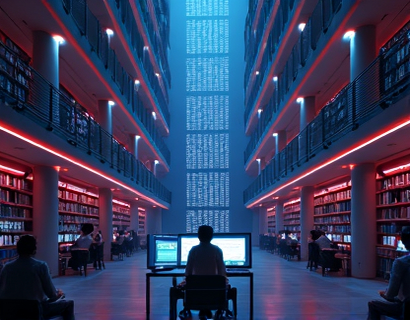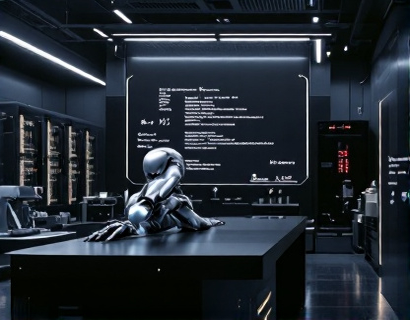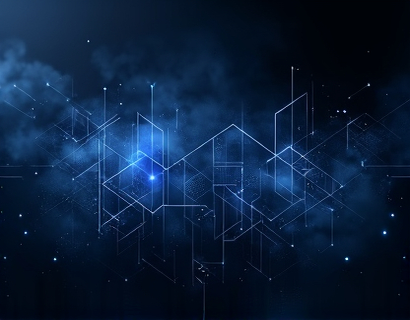Decentralized DAOs: Leading the Way in Community-Driven Web3 Protocol Governance
In the rapidly evolving landscape of Web3, decentralized autonomous organizations (DAOs) have emerged as a transformative force, redefining how communities govern and manage digital protocols. This article delves into the intricacies of DAOs, exploring their structure, benefits, and the pivotal role they play in shaping a more interconnected and future-proof Web3 ecosystem.
Understanding DAOs
Decentralized autonomous organizations, or DAOs, are digital entities governed by smart contracts on a blockchain. These smart contracts encode the rules and decision-making processes, ensuring that the organization operates autonomously and transparently. Unlike traditional organizations, DAOs do not have a central authority or hierarchical structure. Instead, they rely on a decentralized network of members who collectively make decisions through voting mechanisms.
The concept of DAOs was popularized by Vitalik Buterin, a co-founder of Ethereum, in his 2025 blog post. The idea gained significant traction with the launch of The DAO, a decentralized venture capital fund, in 2025. Although The DAO was compromised by a hack, it highlighted the potential and challenges of decentralized governance, spurring further development and innovation in the DAO space.
Key Components of DAOs
At the core of a DAO are several key components that enable its decentralized and autonomous nature:
- Smart Contracts: These self-executing contracts with the terms of the agreement directly written into code. They automate governance processes, ensuring transparency and immutability.
- Tokenized Membership: Members of a DAO typically hold tokens that grant them voting rights and other privileges. This tokenization mechanism ensures that participation is accessible and quantifiable.
- Decentralized Decision-Making: Decisions are made through community voting, where token holders propose and vote on proposals. This process democratizes governance, allowing a broader range of voices to contribute to the direction of the organization.
- Transparency and Auditability: All transactions and decisions are recorded on the blockchain, providing a transparent and auditable trail. This enhances trust and accountability within the community.
Benefits of DAOs in Web3 Governance
The adoption of DAOs in Web3 protocol governance offers numerous advantages that traditional centralized models cannot match:
Enhanced Collaboration
DAOs foster a collaborative environment where members from diverse backgrounds can contribute to the development and governance of protocols. This inclusivity leads to more innovative solutions and a richer ecosystem. The decentralized nature of DAOs encourages open communication and knowledge sharing, breaking down silos and fostering a sense of community.
Increased Transparency
Transparency is a cornerstone of DAOs. All actions, decisions, and financial transactions are recorded on the blockchain, visible to all members. This level of transparency reduces the risk of corruption and mismanagement, as every action is traceable and verifiable. It builds trust among community members and attracts more participants to the ecosystem.
Scalability and Flexibility
DAOs are inherently scalable and flexible. New members can join and contribute to the governance process without the need for bureaucratic approvals. The smart contract-based governance model allows for rapid adaptation to changing circumstances, enabling the organization to evolve and respond to new challenges swiftly. This agility is crucial in the fast-paced world of Web3, where technologies and user needs are constantly evolving.
Community Empowerment
By placing power in the hands of the community, DAOs empower individuals to have a direct say in the direction and development of protocols. This empowerment leads to higher engagement and a stronger sense of ownership among members. It also ensures that the organization remains aligned with the needs and values of its community, fostering long-term sustainability.
Case Studies: Successful DAOs in Web3
Several DAOs have demonstrated the potential of community-driven governance in Web3. Here are a few notable examples:
Synthetix DAO
Synthetix is a decentralized finance (DeFi) protocol that issues synthetic assets, allowing users to borrow, lend, and trade synthetic versions of real-world assets. The Synthetix DAO governs the protocol through a tokenized voting system, where holders of Synthetix DAO tokens (SXP) can propose and vote on changes to the protocol. This model has enabled Synthetix to grow rapidly and become one of the leading DeFi platforms.
MakerDAO
MakerDAO is another prominent example, focusing on the creation and management of stablecoins called DAI. The Maker Protocol is governed by the MKR token holders, who participate in the governance through the Maker DAO. This decentralized approach has allowed MakerDAO to maintain stability and resilience, even in volatile market conditions.
OpenSea DAO
OpenSea, a decentralized marketplace for NFTs, operates under the governance of the OpenSea DAO. Token holders can propose and vote on changes to the platform, ensuring that the marketplace evolves in line with community needs. This governance model has contributed to OpenSea's success and its position as a leading NFT marketplace.
Challenges and Considerations
While DAOs offer numerous benefits, they also come with challenges that need to be addressed:
Governance Complexity
Designing effective governance mechanisms that balance decentralization with efficiency can be complex. Poorly designed voting systems or proposal processes can lead to decision paralysis or manipulation by malicious actors. DAOs must continuously refine their governance models to ensure they remain functional and fair.
Security Risks
Smart contracts, while transparent, are not immune to vulnerabilities. Bugs or exploits in the code can lead to significant losses. DAOs must prioritize security audits and best practices to mitigate these risks. The community plays a crucial role in identifying and addressing potential security issues.
Regulatory Uncertainty
The regulatory landscape for DAOs and decentralized organizations is still evolving. Legal uncertainties can pose challenges for adoption and growth. DAOs need to stay informed about regulatory developments and engage in constructive dialogue with policymakers to shape a favorable environment.
The Future of DAOs in Web3
As Web3 continues to mature, DAOs are poised to play an increasingly significant role in shaping the digital landscape. Here are some trends and predictions for the future:
Increased Adoption
As more people become familiar with blockchain technology and the benefits of DAOs, adoption is expected to grow. Institutions and mainstream users will likely explore DAOs as a means to participate in decentralized ecosystems, driving further innovation and development.
Integration with Traditional Systems
DAOs will increasingly integrate with traditional financial and organizational systems, bridging the gap between decentralized and centralized models. This integration can lead to hybrid governance structures that leverage the strengths of both approaches.
Enhanced User Experience
To attract a broader audience, DAOs will focus on improving user experience. This includes developing more user-friendly interfaces, simplifying participation processes, and enhancing educational resources to make decentralized governance accessible to everyone.
Ecosystem Interoperability
Interoperability between different DAOs and blockchain platforms will become a key focus. Standardized protocols and cross-chain solutions will enable seamless collaboration and resource sharing, fostering a more interconnected Web3 ecosystem.
Conclusion
Decentralized DAOs represent a paradigm shift in how communities govern and manage digital protocols. By leveraging blockchain technology and decentralized governance, DAOs offer enhanced collaboration, transparency, and scalability. As the Web3 landscape continues to evolve, DAOs will play a crucial role in building a more inclusive, resilient, and future-proof digital world. Joining the DAO movement means being part of a transformative journey towards a more interconnected and equitable Web3 ecosystem.




